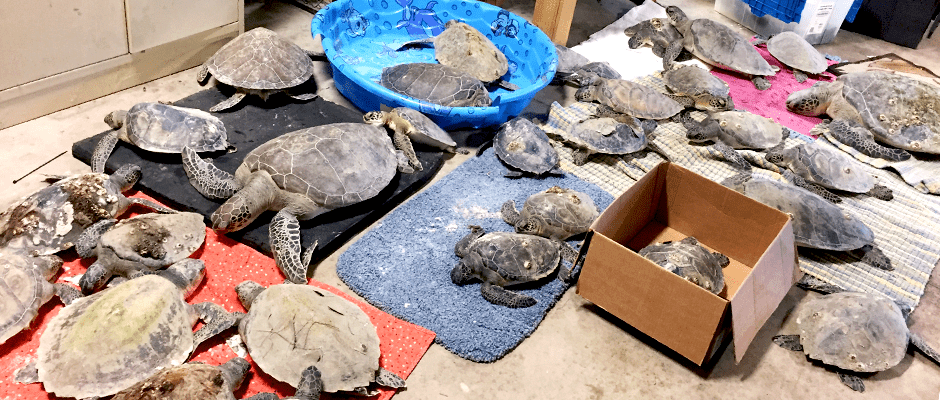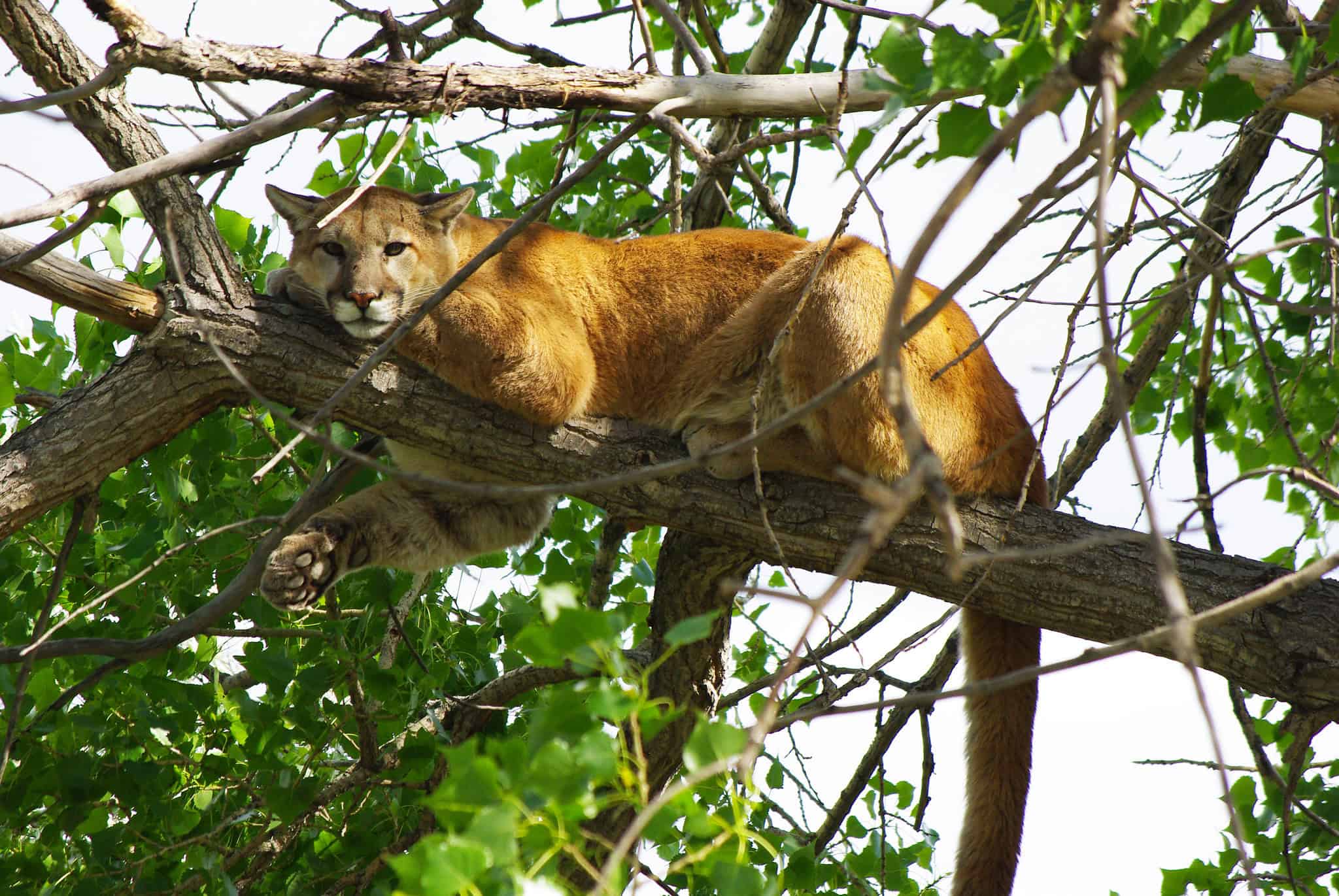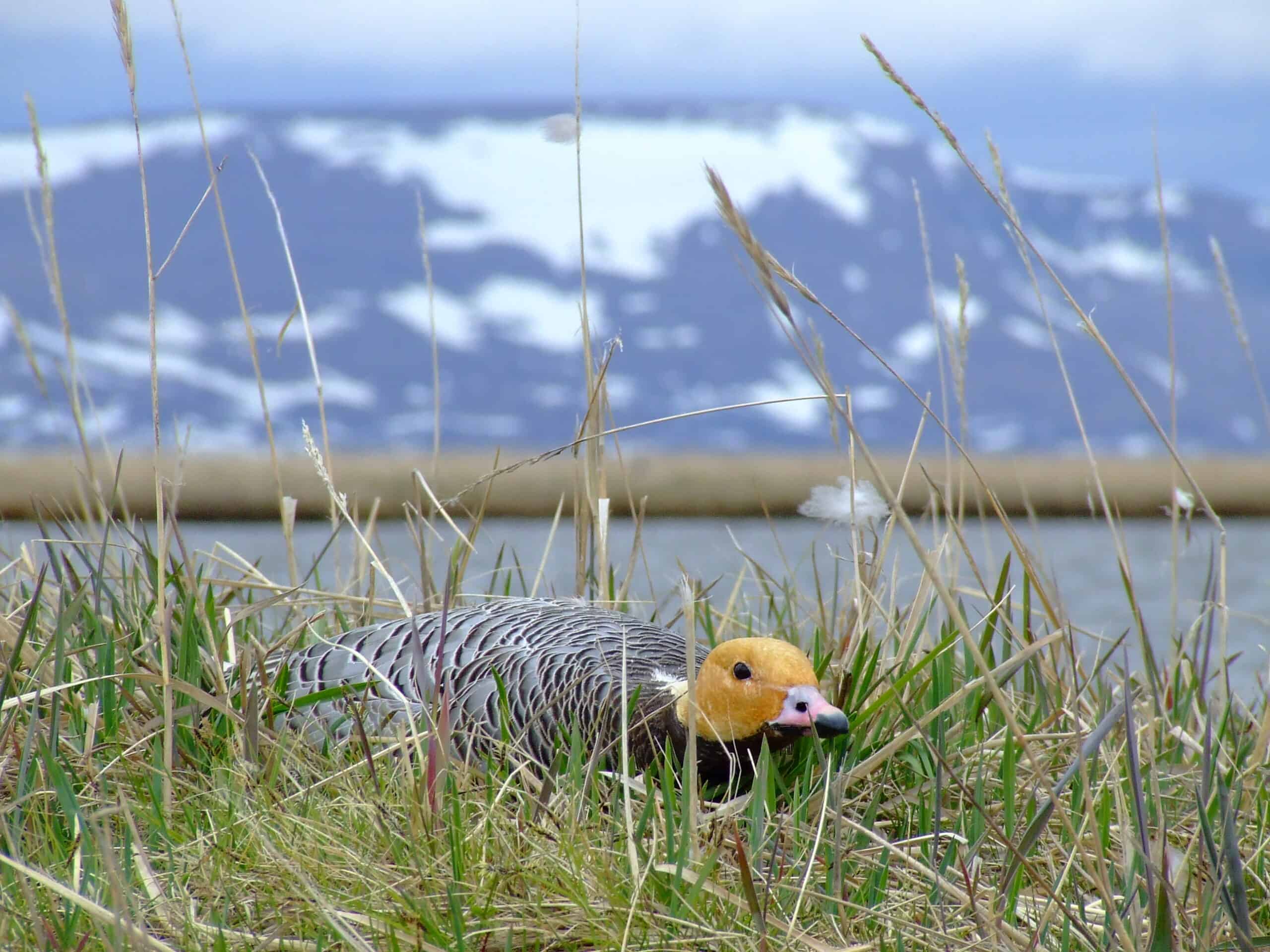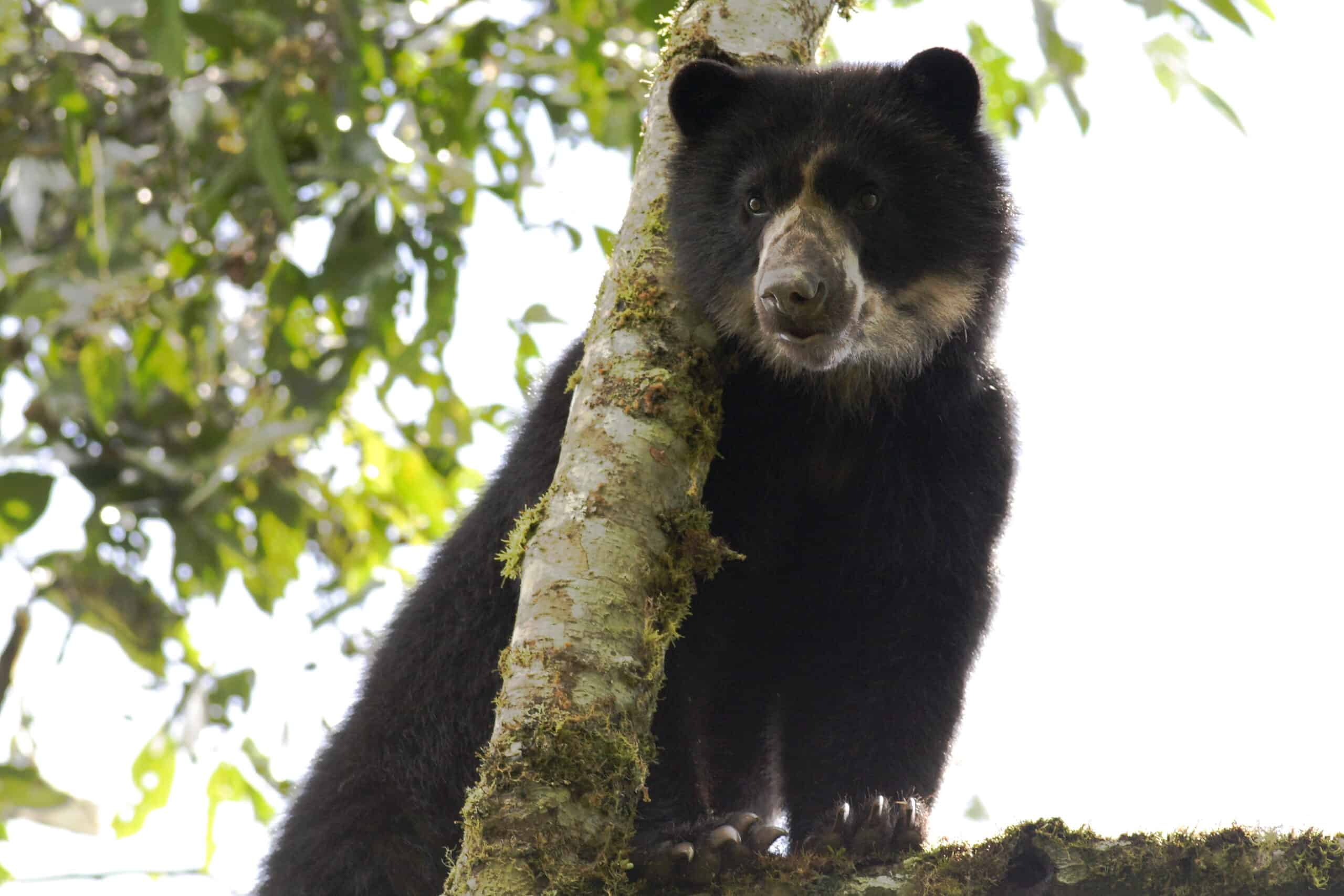Share this article
Aiding stunned sea turtles along Florida’s Gulf Coast
Wildlife Services Technician Josh Davison shifted his daily duties because of early-January’s cold weather along Florida’s Gulf Coast, but not for the reason you may think.
The same cold front that dumped snow and ice on a large portion of the country, blanketed the Gulf Coast with prolonged freezing temps. Instead of finding a nice warm spot in his office near Panama City to hibernate until it passed, Josh braved the cold to help a few sea turtles that were shocked by the wintery weather. The prolonged below-freezing temps in the area dropped Gulf water temps to below 50 degrees in shallower water, a problem for sea turtles hanging out in shallow waters, because their body temp matches the water temp.
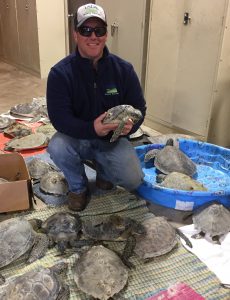
Josh Davison, a WS technician, surrounded by some of the sea turtle rescued by him and Tyndall AFB natural resources staff. @USDA
When this happens the turtles become shocked or “stunned,” entering a somewhat comatose state, and they begin to wash up on the shore. Josh’s duty station is Tyndall Air Force Base where he works in cooperation with Tyndall’s Natural Resources division to help alleviate damaging wildlife situations on base property, which includes many miles of shoreline. A large portion of his regular duties include removing mammalian predators along the beach to help protect nesting shorebirds and sea turtles. But this time, instead of removing predators to protect sea turtles, he was removing sea turtles to protect sea turtles.
He assisted Tyndall Natural Resources personnel patrolling 12-15 miles of coastline and looking for stunned turtles. A total of 140 collected turtles were taken to a central location and then transferred to Gulf World Marine Institute in Panama City Beach. The Institute reported receiving more than 800 loggerhead (threatened), green (threatened) and Kemp’s ridley (endangered) sea turtles between January 2 and 8 from wildlifers and concerned public. The three species that have entered rehab include the Kemp’s ridley sea turtle, green sea turtle and loggerhead sea turtle. Gulf World treated the turtles to some well-deserved R&R and a dip in a much warmer pool to bring their body temps back up to normal. Once the cold weather has moved on, they will release the turtles back to Gulf waters.
Wildlife Services is a Strategic Partner of The Wildlife Society.
Header Image: Some of the sea turtles warm up inside before transfer to Gulf Coast Marine Institute. @usda



